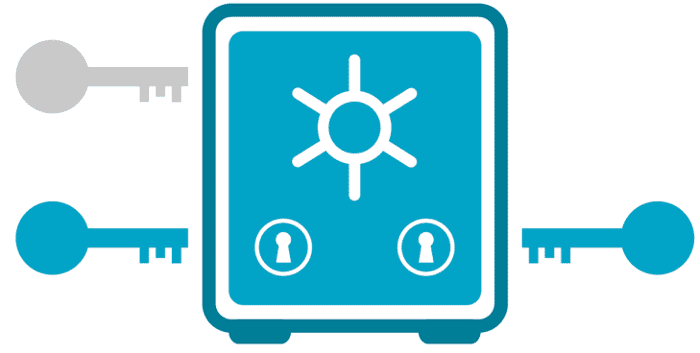Why Multisig Smart Contracts Will Likely Take Over Ethereum Classic & The World
2018/02/14 Christian Seberino
Multisig smart contracts will likely be the dominant smart contract type in the future. The security and other benefits are that compelling. I will describe these smart contract types and scenarios where they are useful.
Introduction
Malware, keyboard loggers and “man in the middle attacks” are just some of the ways passwords can be stolen. Therefore, many use multifactor authentication to increase security. For example, accessing a website from a laptop may require a password and approval from a smartphone.
Ethereum Classic (ETC) and other smart contract systems can also benefit from multifactor authentication. ETC users are associated with accounts. ETC account authentication involves digital signatures. Therefore, ETC smart contracts requiring multifactor authentication are referred to as multisig smart contracts.
2 Of 3 Applications
One of the most common types of multisig smart contracts requires digital signatures from any two of three accounts. Here are some applications where this is useful:
Single Individuals - Imagine always requiring a digital signature from a laptop based account and a smartphone based account. To protect against the loss of either device, store the information for the third account in a secured paper wallet.
Online Shopping (Trusted Escrow) - When purchasing products and services online, imagine buyers placing funds in multisig smart contracts. Have buyers and sellers each control an associated account. Allow an arbiter to control the third associated account. Notice buyers and sellers can together release funds without the arbiter. In the event of disagreements notice the arbiters can, together with buyers or sellers, release funds to the desired choices. This is referred to as trusted escrow because the arbiter does not control of any funds.
Small Businesses - Imagine a small business controlling one associated account, and, a separate inspection service company controlling the second associated account. All transactions must be approved by the inspection service. To protect against issues with either account, store the information for the third associated account in a secured paper wallet.
Additional Applications
Here are two more multisig smart contract types and applications:
Majority Rule - Imagine all members of a group controlling separate associated accounts. Always require digital signatures from any majority of the accounts. This would implement a majority rule arrangement.
Unanimity Rule - Imagine all members of a group controlling separate associated accounts. Always require digital signatures from all of the accounts. This would implement a unanimity rule arrangement.
Standardization
There are currently no ETC multisig smart contract standards. However, open source templates are available such as from the OpenZeppelin project.
Conclusion
There are several common scenarios where multisig smart contracts are useful and significantly increase security. Therefore, it is likely they will take over ETC and the world.
Feedback
You can contact me by clicking any of these icons:
Acknowledgements
I would like to thank IOHK (Input Output Hong Kong) for funding this effort.
License
This work is licensed under the Creative Commons Attribution ShareAlike 4.0
International License.









